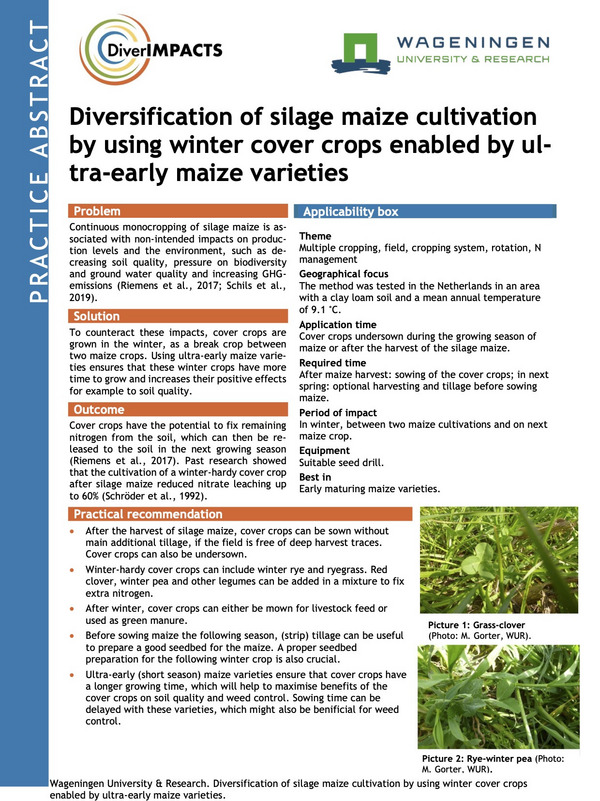Project partners from Wageningen University & Research Farming Systems Ecology Group, The Netherlands, WUR FSE, Martin Gorter, Fogelina Cuperus with the assistance of other colleagues, recently published a practice abstract explaining diversification in silage maize production.
To counteract the negative impacts of continuous monocropping of silage maize, cover crops are grown in the winter, as a break crop between two maize crops. Using ultra-early maize varieties ensures that these winter crops have more time to grow and increases their positive effects for example to soil quality. Cover crops have the potential to fix remaining nitrogen from the soil, which can then be released to the soil in the next growing season. Past research showed that the cultivation of a winter-hardy cover crop after silage maize reduced nitrate leaching.
Further information
Links
- zenodo.org: Practice abstract: Diversification of silage maize cultivation by using winter cover crops enabled by ultra-early maize varieties
- DiverIMPACTS Practice Abstracts

 tap and then scroll down to the Add to Home Screen command.
tap and then scroll down to the Add to Home Screen command.